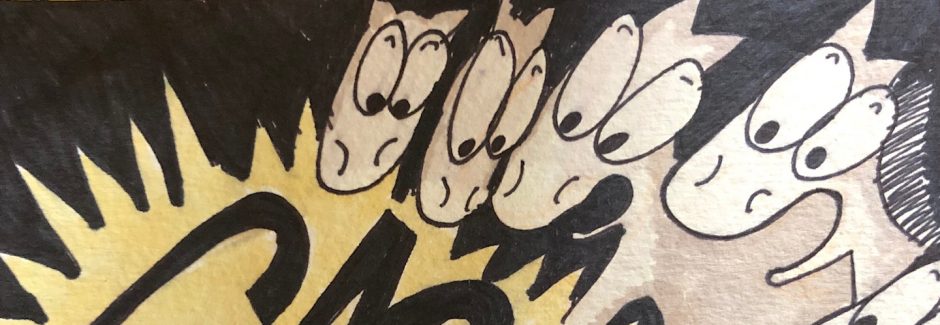 Way back when raw food was not a fad but because fire was still in the testing stage, I decided to add an American literature course onto my somewhat circuitous route to a prestigious but ultimately decorative Bachelors degree.
Way back when raw food was not a fad but because fire was still in the testing stage, I decided to add an American literature course onto my somewhat circuitous route to a prestigious but ultimately decorative Bachelors degree.
 I attended the University of Alberta, temple to the cult of Atwood: and ‘lo, she stretched forth her hand, breathed upon her students and sent them out, as the helicoptering seeds of the dandelion, a carpet of the myriad nodding yellow reflections of the great yellow helios in the sky, sent them scattering out upon the surface of the nation, like rings rippling the cold, blue skin of water resting in the cleft of the great, grey shield of rock, spreading out so that all should know of her complex poetic rhythms and the depth of metaphor continually repeated in tones of edible and otherwise eternal woman.
I attended the University of Alberta, temple to the cult of Atwood: and ‘lo, she stretched forth her hand, breathed upon her students and sent them out, as the helicoptering seeds of the dandelion, a carpet of the myriad nodding yellow reflections of the great yellow helios in the sky, sent them scattering out upon the surface of the nation, like rings rippling the cold, blue skin of water resting in the cleft of the great, grey shield of rock, spreading out so that all should know of her complex poetic rhythms and the depth of metaphor continually repeated in tones of edible and otherwise eternal woman.
But this post is not about her. It is about two American Authors. See, while I was at the U of A, I came across a class taught by a prof who persisted in the heretical belief that literature originating from below the 49th parallel should be taught in a university nestled within the borders of the true North etc, etc…. I know, the mind reels.
 In 1906 Upton Sinclair wrote a wee book called The Jungle, about a Lithuanian immigrant’s experiences in the slaughterhouses and the streets of Chicago. Sinclair was looking to rouse the American consciousness to the terrible working conditions faced by workers grinding under the thumb of the Meatpackers combine.
In 1906 Upton Sinclair wrote a wee book called The Jungle, about a Lithuanian immigrant’s experiences in the slaughterhouses and the streets of Chicago. Sinclair was looking to rouse the American consciousness to the terrible working conditions faced by workers grinding under the thumb of the Meatpackers combine.
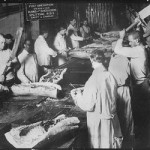 This was at the time the great economic giant of America was beginning to shift into high gear. The children of the great Yankee robber barons were hitting their stride, greed was good, and the poor were just another resource to exploit by right of might. Unfortunately, in choosing to write in bold strokes about the horrors of the meatpacking industry, Sinclair was later to say, “I aimed at the public’s heart, and by accident I hit it in the stomach.”
This was at the time the great economic giant of America was beginning to shift into high gear. The children of the great Yankee robber barons were hitting their stride, greed was good, and the poor were just another resource to exploit by right of might. Unfortunately, in choosing to write in bold strokes about the horrors of the meatpacking industry, Sinclair was later to say, “I aimed at the public’s heart, and by accident I hit it in the stomach.”
His book did bring about great reforms in food and drug legislation. Unfortunately, the 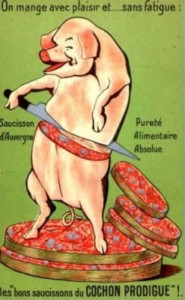 reforms did not extend to improving the working conditions for the labourers; there is some reason to believe it actually made it worse. Somehow the endless chapters detailing whole families wiped out by starvation, worked literally to death, frozen, drowned or evicted by unscrupulous slumlords and their everyday rape and exploitation by corrupt government officials had substantially less impact on the reading public than a graphic description about how and from what sausage is made.
reforms did not extend to improving the working conditions for the labourers; there is some reason to believe it actually made it worse. Somehow the endless chapters detailing whole families wiped out by starvation, worked literally to death, frozen, drowned or evicted by unscrupulous slumlords and their everyday rape and exploitation by corrupt government officials had substantially less impact on the reading public than a graphic description about how and from what sausage is made.
There are passages in The Jungle that are still nothing less than jaw-dropping: descriptions of steaming, smoking, freezing hells where men fight for the chance to work themselves to death for pennies a day. And before you start in on, ‘well, pennies a day then equals a vast fortune today’, the hourly wage the hero, Jurgis Rudkis, earned at the peak of his slaughterhouse employment would be equal to $4.02 in 2009 dollars.
Sinclair wrote like a blacksmith hammering steel and never managed to repeat the success of The Jungle. His books were popular in his day but only the Jungle seems to have stood the test of time. There is a charming quote that sums it all up, from Time magazine, “a man with every gift except humour and silence.”
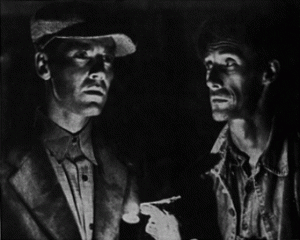 I prefer my socialist gospel from John Steinbeck. Truth be told, I prefer just about everything written by Steinbeck over most of his contemporaries and many authors since. Yes, including Hemingway. Especially Hemingway. But that is another story.
I prefer my socialist gospel from John Steinbeck. Truth be told, I prefer just about everything written by Steinbeck over most of his contemporaries and many authors since. Yes, including Hemingway. Especially Hemingway. But that is another story.
The Grapes of Wrath is equally powerful, breath taking and, at the same time, it does it without pulling out a soapbox and megaphone. The characters are far more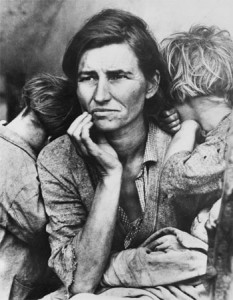 human than Sinclair’s. More than can be accounted for by the passage of a few years between their authorship.
human than Sinclair’s. More than can be accounted for by the passage of a few years between their authorship.
Anyway, this was not meant to be an advanced book report. I merely wanted to put out that there is a strong tradition in American literature for reasoned, intelligent discussion of Socialism and a recognition for the need to put throttle controls on the laissez-faire express train. There is nothing wrong with capitalism but it, in and of itself, can not and should not ever be allowed to flourish at the expense of basic humanity.
So why does it continue to happen? That was one question my American lit prof was never able to answer. But it should be noted he was an American who preferred to make his observations from this side of the border.
